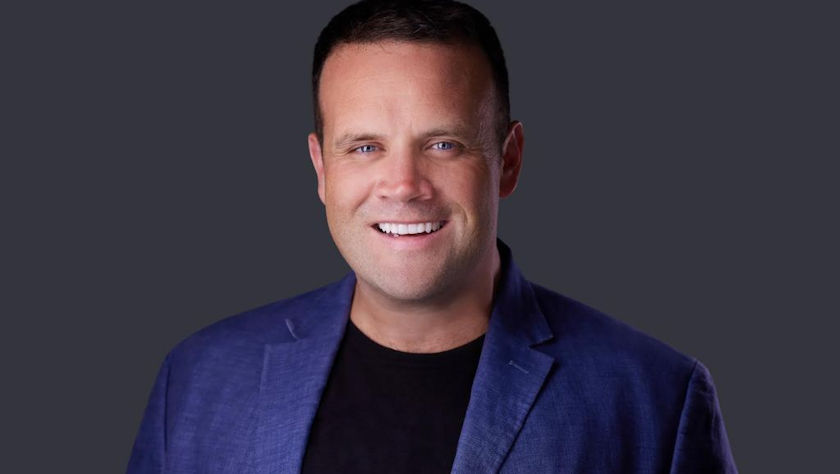We recently caught up with cloud services entrepreneur Stephen Garden on his experiences scaling services companies in-organically through acquisitions and using growth equity. He’s been involved in nearly a dozen M&A transactions in this space since 2017. Most notably he was the Founder and CEO of Onica, a Cloud Computing Services company which scaled to 350 employees across 12 offices globally, prior to being acquired by Rackspace Technology in 2019.
Firstly, what are cloud services companies and how common is M&A in that sector?
Cloud services companies at their core are very similar to most services or consulting companies, they provide people with know-how and proven methodologies to help their customers tackle specific business challenges or initiatives. In the case of cloud services it’s frequently involving a customer’s technology landscape, helping them move to the cloud or build new applications inside the cloud. M&A has been very common in this space, probably more than 100 acquisitions have taken place in the past 10 years.
Why would a company look to make acquisitions vs pursuing an organic expansion path?
There are really two groups of companies making acquisitions, the first group are ‘platform’ companies, often investor backed and following ‘roll up’ strategies of consolidating smaller players in a market. The second group of acquirers are known as strategic acquirers who are most commonly making a single large acquisition in order to gain sizable capability in a specific space, they frequently acquire the platform companies once they’re reached a certain scale, normally over $50 million in revenue for example.
The rationale of why make an acquisition is typically similar in both buyers mindsets, it comes down to speed. Getting into a new geography, new market, new skillset etc can be obtained a lot quicker through acquisition than through organic development. Successful acquisitions fill gaps and help make your business more complete.
What is the role of growth equity firms in cloud services M&A?
The platform plays are normally growth equity backed, the investors bring the skills and capital to the table to successfully acquire businesses leaving the company management team to the integrations. During my period running Onica we had a very successful relationship with Sunstone Partners who helped us initially carve out Onica before completing two acquisitions and our eventual exit and sale to Rackspace Technology.
M&A can be fraught with risks and challenges, what is your advice to people embarking on this journey?
At the outset I’d say focusing on the white space or gaps you need to fill vs pursuing a strategy of just merging with your most comparable competitor is a better plan in my experience. With any acquisition you’re going to pick up duplicative elements the former white space strategy helps minimize those duplications while also genuinely adding new capabilities.
Getting to know companies over extended periods of time is certainly important if you have that option. Seeing how their business continues to evolve can give you a sense of issues that you wouldn’t pick up on in a condensed time frame due diligence process.
Readying everyone for the rollercoaster ride of an integration helps considerably, there is often a honeymoon phase at the announcement of a deal, it’s important not to be too optimistic or confident in how you communicate to the newly combined employee base. Difficult issues will almost certainly soon arrive, and people will watch carefully how you lead the business through them, bringing both parties together to solve these things helps get buy-in. In the optimal case you’re taking the best of both businesses into the go-forward company, and everyone sees the benefits.
My final piece of advice would be to set realistic and achievable expectations. If you assume the new business you are buying will suddenly fix all your current problems you might be in for a nasty surprise. Every business has their own individual issues, when I’m doing due diligence I’m always looking to find these issues to help figure out how they can be addressed to make that business stronger before expecting it to make the platform stronger.
Should the selling founders remain involved once their company has been acquired?
It’s tempting to be very delicate around the selling founders, they’ve most likely held their business together and assembled it from scratch so making a sudden move to exit them could set off alarm bells. M&A can be successful with or without the founders remaining within the business, it’s really going to come down to the remits they are given, how they gel with the wider management team and whether they’re still motivated. I don’t see harm in slow playing founder exits through soft transitionary plans however I would say that getting the selling founders management team successfully integrated is more of a priority action though because this will have a far greater downstream impact on business decisions and progress.
Are you pro M&A or pro Organic?
In services companies I’m certainly pro-M&A, the success ultimately comes down to how well you can manage culture and personalities across the expanded leadership team. I do believe that it’s essential you have a strong organic growth engine to further underpin your stability while integrating because solving for growth challenges will ultimately pull the companies even tighter together.




